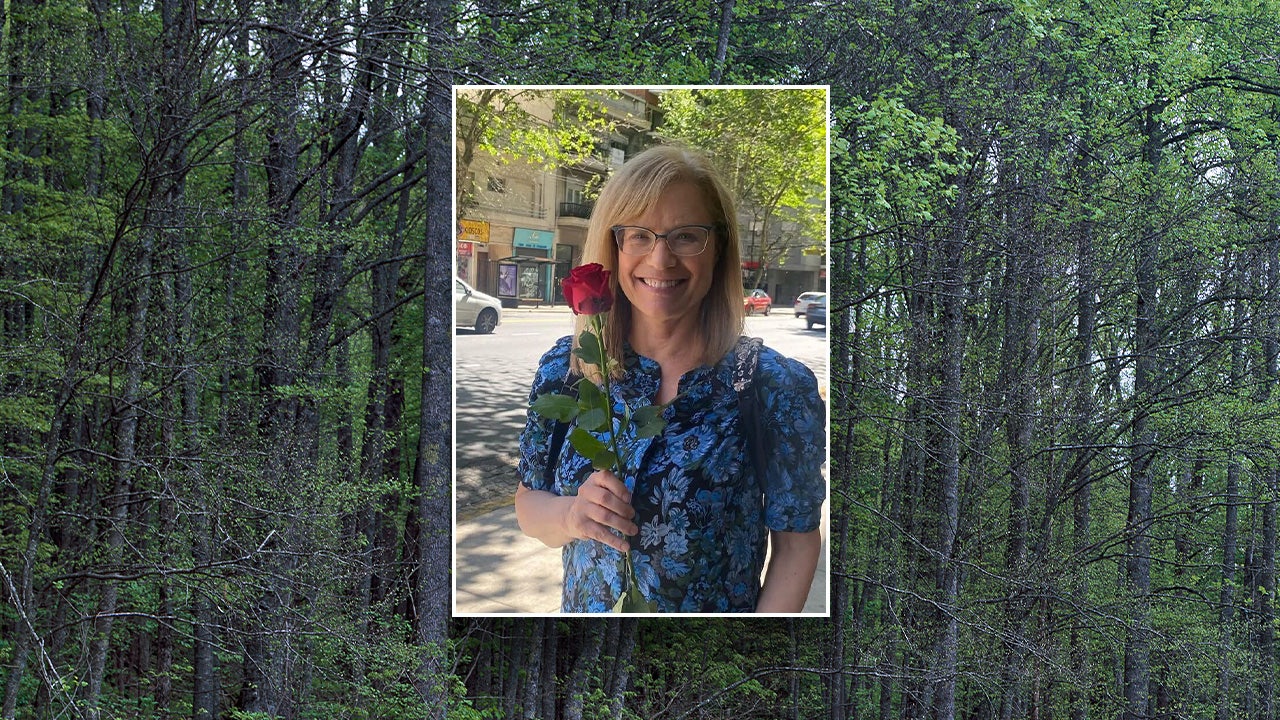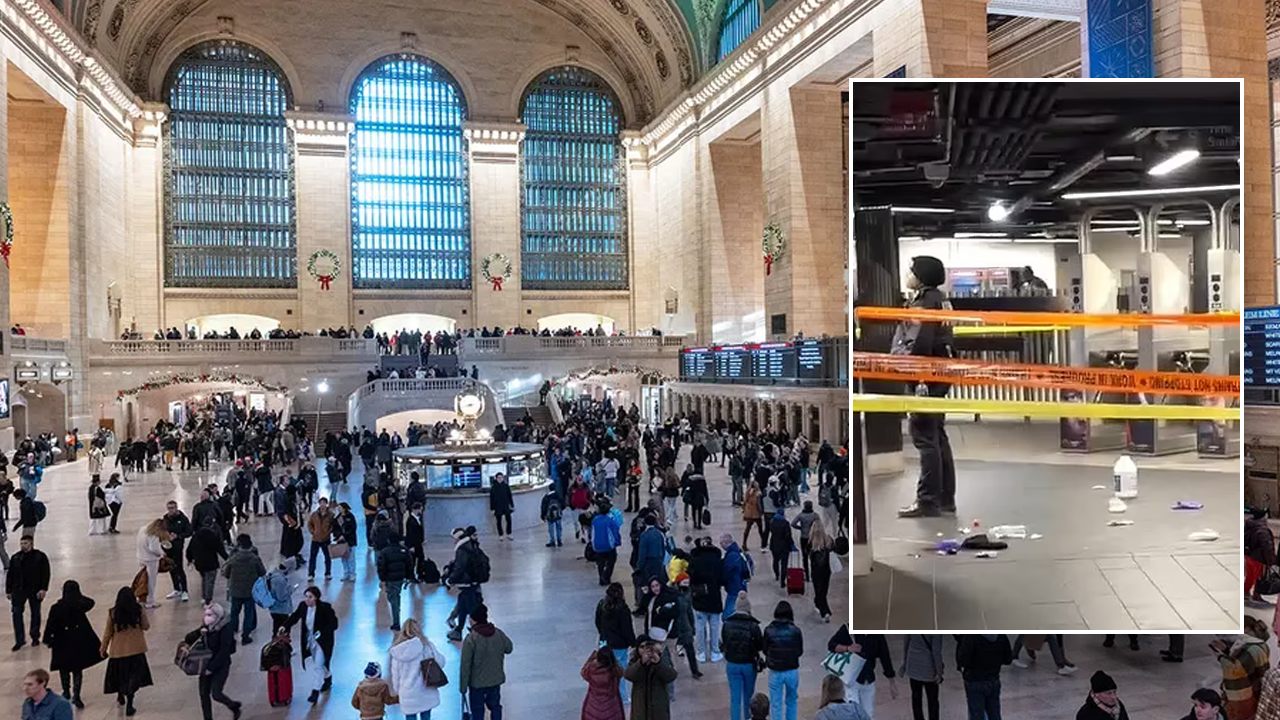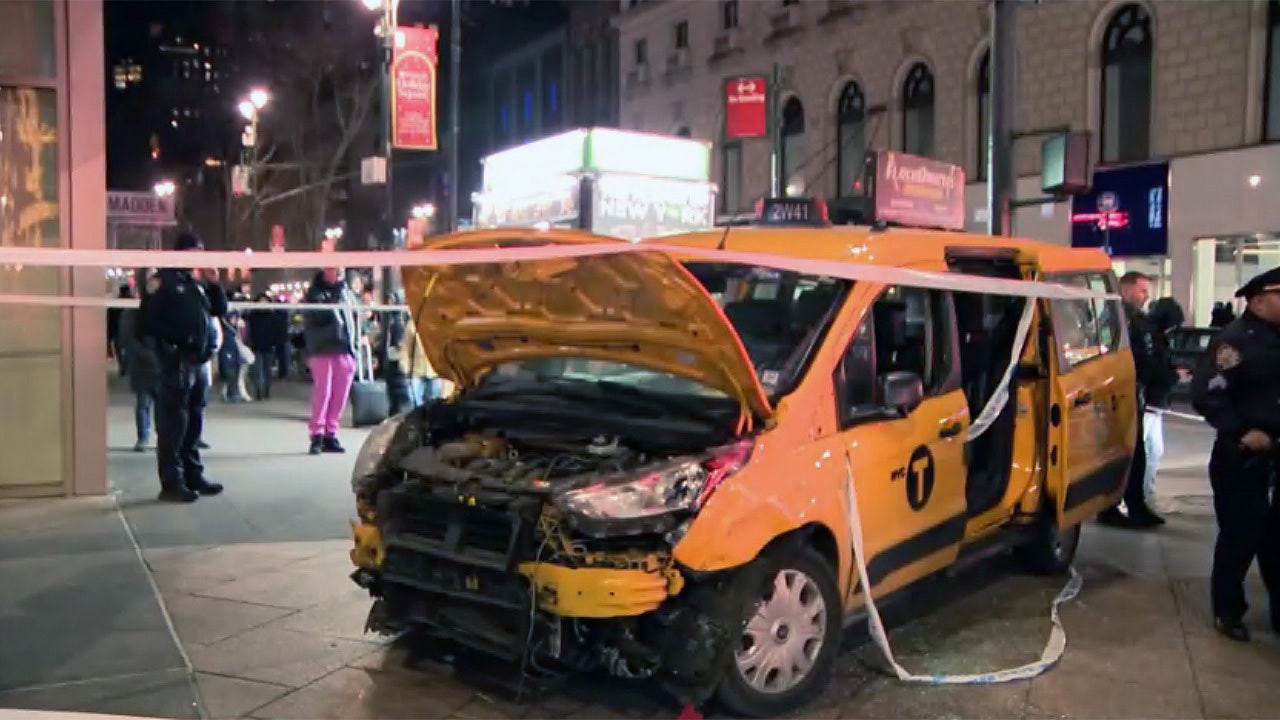It might be winter outside, but at Hudson Yards, it’s always the summer of 1987.
Thousands of thrill seekers and art lovers are flocking to Luna Luna — the world’s first-ever art amusement park that has finally made its way to the Big Apple after decades of being lost to history.
And while visitors can no longer hop on the attractions — handpainted by Jean-Michel Basquiat, Keith Haring, Salvador Dalí and more — the immersive exhibit offers a chance to take a ride back in time and encourages everyone to embrace their inner child.
“It’s one of the only projects that I can think of that really can touch such a wide net of people,” Michael Goldberg, chief entertainment officer of Luna Luna: Forgotten Fantasy, told The Post.
“If you’re obsessed with art history and you know everything there is to know about these artists or you don’t know anything about any of the artists — I guarantee there’s something that you’re going to find intriguing or entertaining in this project. It’s amazing to see people come to this space and just be truly moved by the story by the artwork.”
For Goldberg, it wasn’t a matter of if Luna Luna would be brought to New York City — but when.
The sprawling amusement park had been locked away in a Texas warehouse since 1987 after enjoying just one trailblazing summer in Hamburg, Germany.
Conceived by Austrian artist André Heller, Luna Luna was a “fantastical fairground” that fused real-life carnival attractions with some of the most iconic artists of the time, including a carousel made of Haring’s iconic stick figures and a Ferris wheel detailing Basquiat’s drawings.
Fortunately, the pieces — stored across 44 shipping containers — were kept in near-pristine condition until Goldberg and a team that also included rapper Drake rescued them in 2022.
In its new form, Luna Luna is more of an immersive museum than an amusement park — despite the rides being in impeccable condition, none of the visitors are permitted to take a spin.
That doesn’t mean, however, that the carnival experience is lost.
The rides continue to whirl as carnies — or characters dressed up in alien-like costumes — race around the studio and encourage visitors to dance to the tunes of André 3000, David Byrne, Jamie xx and more.
Guests are invited to enter exhibits like Roy Lichtenstein’s “Pavilion” and Salvador Dalí’s “Dalídom,” which utilize glass and mirrors, respectively, for the classic funhouse experience. In one corner, there’s Patrick Raynaud’s “Playground of geometric sculptures,” where the only rules for playing with the massive foam structures are to have fun and not hurt others.
There’s even a chapel where all marriages are legal. The tiny church has seen pet lovers wed their dogs, photographers get hitched to their cameras and — groundbreakingly for the 80s — same-sex marriages.
Last week, childhood sweethearts tied the knot in Heller’s “Dream Station & Wedding Chapel” on what they thought was going to be an average date night at a museum.
“We just saw it and we knew we had to do it. Since we were in eighth grade, we’ve always wanted to do this, so we might as well get married today!” said Rory Dwyer, 19, a student at Fordham University.
The nuptials included wearing plush bagels on their heads and playing ring toss at the pupil before being granted a marriage license — which the priest assured them was not legally binding.
“They were so goofy about it. And they made it so fun,” said new bride Jill Cavanaugh, 19, who was visiting Dwyer from Buffalo.
That whimsy is a throughline for the entire exhibit, Goldberg explained — though he said many of the art installations are very serious works.
For example, the “Crap Chancellery” at first glance appears to just be two columns topped off with piles of feces, but is actually a targeted mockery of Nazi Germany. For the original Luna Luna, artist Daniel Spoerri, whose father was killed in the Holocaust, erected the pillars in front of a replica of a Nazi shrine to essentially turn it into a bathroom.
The statement artwork is almost immediately preceded by the “Palace of Winds,” by Austrian political cartoonist Manfred Deix, which focuses on individuals making so-called music by passing gas. The piece is simply to make visitors “laugh with glee and discomfort.”
“It’s cool, it’s very eclectic. It’s art — art is always kind of weird,” said Alison, 27, who stopped by the exhibit with her parents between a play and dinner — and joked Luna Luna would be a great place to trip on mushrooms.
Her father, Andrew, had few expectations for the experience, but was interested in laying his eyes on the scene after reading about its history.
“It’s stunning really, particularly the ‘Dalídom’,” said Andrew, 69, pointing to the geodesic dome of mirrors meant to induce spatial hallucinations.
“It’s a funhouse Mecca, isn’t it? Because to stand in the middle of it — every single one of those mirrors has got your reflection in them. It’s kind of astounding, egocentric, Dalí-esque piece.”
The Dalídom was also a favorite for Mona Wang, 23, who was eager for a chance to get as up close and personal to the artwork as possible.
“It’s a very cool place — I know a lot of the artists and it’s cool to see how it looks,” said Wang, who studies art history at New York University.
Fellow art student Tony Zhang, 26, shared similar thoughts, pointing to the Basquiat Ferris wheel as the most impressive surviving piece.
Zhang, however, had just one complaint about the entire experience.
“I was hoping there would be something to ride on.”
Read the full article here














